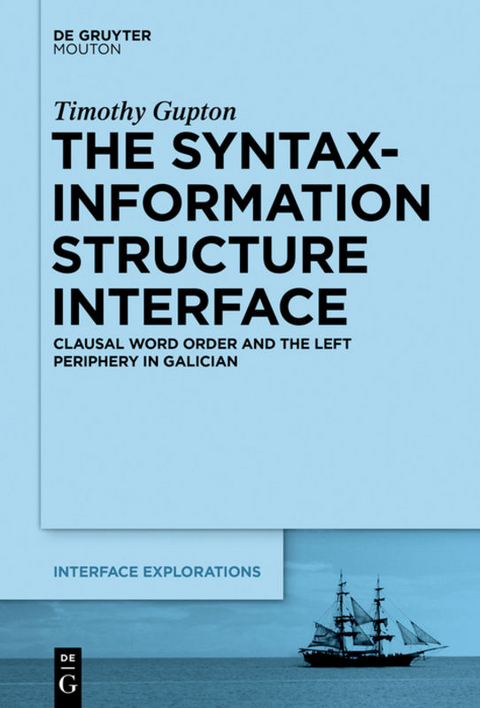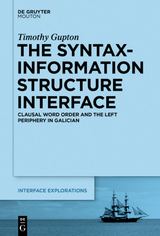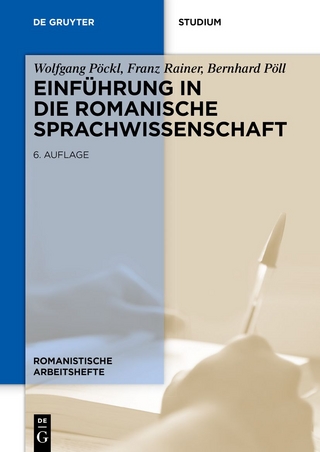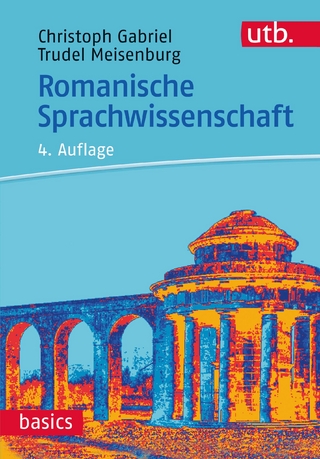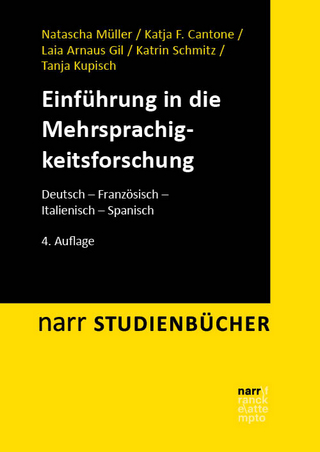The Syntax-Information Structure Interface
Clausal Word Order and the Left Periphery in Galician
Seiten
2014
de Gruyter Mouton (Verlag)
978-1-61451-271-4 (ISBN)
de Gruyter Mouton (Verlag)
978-1-61451-271-4 (ISBN)
The syntactic analysis of preverbal subjects has been the topic of debate for a wide variety of languages. This book establishes clausal word order preferences for Galician, a null-subject language of the Iberian Peninsula, based on quantitative and qualitative data.
It is quite remarkable that, after over a half-century of generative grammar, there is still uncertainty with respect to the analysis of preverbal subjects in a number of languages. According to canonical analyses, preverbal subjects are arguments (A-elements). However, following non-canonical analyses, preverbal subjects are not arguments, but rather A’-elements that behave like topical preverbal direct and indirect objects, which have received a CLLD analysis in the literature (e.g. Cinque 1990). The implications of this debate are far-reaching for generative theory: if preverbal subjects are non-arguments, one must question the universality of the EPP (as in e.g. Alexiadou & Agnostopoulou 1998), as well as its associated features and feature-strengths. Galician is an underdocumented Romance language within the generative paradigm. In this book, I develop an experimental program for establishing clausal word order preferences for a number of information structure contexts. The preference data suggest that preverbal subjects behave like canonical elements, and not CLLD elements. These results inform the model of the preverbal field that I propose for Galician, which also takes into account the enclisis-proclisis divide and reco.
It is quite remarkable that, after over a half-century of generative grammar, there is still uncertainty with respect to the analysis of preverbal subjects in a number of languages. According to canonical analyses, preverbal subjects are arguments (A-elements). However, following non-canonical analyses, preverbal subjects are not arguments, but rather A’-elements that behave like topical preverbal direct and indirect objects, which have received a CLLD analysis in the literature (e.g. Cinque 1990). The implications of this debate are far-reaching for generative theory: if preverbal subjects are non-arguments, one must question the universality of the EPP (as in e.g. Alexiadou & Agnostopoulou 1998), as well as its associated features and feature-strengths. Galician is an underdocumented Romance language within the generative paradigm. In this book, I develop an experimental program for establishing clausal word order preferences for a number of information structure contexts. The preference data suggest that preverbal subjects behave like canonical elements, and not CLLD elements. These results inform the model of the preverbal field that I propose for Galician, which also takes into account the enclisis-proclisis divide and reco.
Timothy Gupton, University of Georgia, USA.
| Erscheint lt. Verlag | 13.10.2014 |
|---|---|
| Reihe/Serie | Interface Explorations [IE] ; 29 |
| Verlagsort | New York |
| Sprache | englisch |
| Maße | 230 x 155 mm |
| Gewicht | 562 g |
| Themenwelt | Schulbuch / Wörterbuch ► Wörterbuch / Fremdsprachen |
| Geisteswissenschaften ► Sprach- / Literaturwissenschaft ► Romanistik | |
| Geisteswissenschaften ► Sprach- / Literaturwissenschaft ► Sprachwissenschaft | |
| ISBN-10 | 1-61451-271-X / 161451271X |
| ISBN-13 | 978-1-61451-271-4 / 9781614512714 |
| Zustand | Neuware |
| Haben Sie eine Frage zum Produkt? |
Mehr entdecken
aus dem Bereich
aus dem Bereich
Deutsch – Französisch – Italienisch – Spanisch
Buch | Softcover (2023)
Narr Francke Attempto (Verlag)
27,99 €
